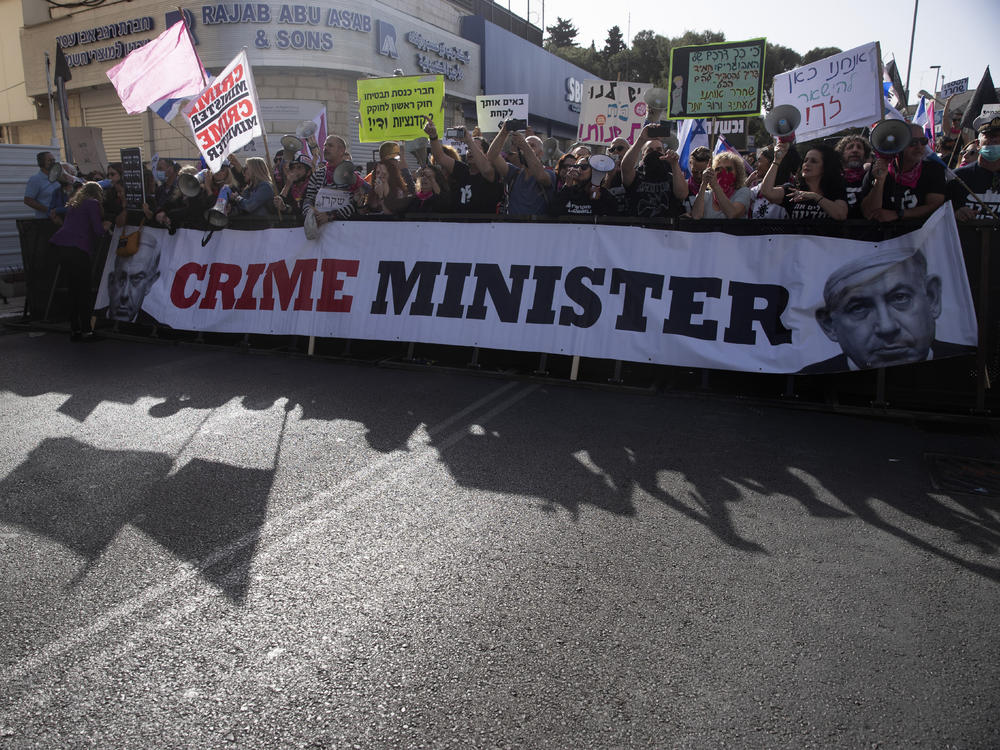Section Branding
Header Content
Netanyahu's Future At Stake Both In The Courtroom And In Politics
Primary Content
JERUSALEM — Israeli Prime Minister Benjamin Netanyahu accused the state prosecution of a "coup attempt" aimed at toppling him from office, as his corruption trial resumed Monday weeks after national elections ended with no clear winner and as political parties held negotiations to determine whether Netanyahu would remain in office.
The uncertain future of Israel's longest-serving prime minister added to the day's drama, as Netanyahu sat silently in a Jerusalem courtroom with his arms folded while state prosecutor Liat Ben-Ari delivered her opening argument following months of preliminary hearings. Netanyahu faces a possible prison sentence if found guilty of bribery and fraud charges.
The prosecutor accused Netanyahu of "grave government corruption" for allegedly dictating coverage in a major Israeli news site beginning in 2012, an effort she said was aimed at shaping public opinion and winning reelection.
"Everyone is equal before the law," Ben-Ari said at the start of her remarks. During the proceedings, Netanyahu's supporters cheered outside the courthouse.
The prime minister left before the first witness was called to the stand: the former editor of Walla! News, who described how he was ordered by the site's owner to censor and shape coverage of Netanyahu and his family according to their requests. Later, Netanyahu delivered a 10-minute speech before cameras, accusing the prosecution of improper investigation tactics and a witch hunt.
"They speak in high words about democracy. But what is done here again and again is an attempt to trample democracy. They are trying to cancel the will of the voters by fabricating charges," Netanyahu said.
Meanwhile, in another corner of Jerusalem, Netanyahu's fate was debated at the president's official residence. Political parties met with President Reuven Rivlin for customary post-election deliberations over which candidate is most worthy of forming the next government, and whether Netanyahu should remain in office.
The March 23 vote was Israel's fourth election in two years — a prolonged political saga in which Netanyahu, who has served for more than a decade as prime minister, has failed to secure a parliamentary majority.
The president must designate a candidate to try to form a government by Wednesday, but with no clear frontrunner and two other candidates besides Netanyahu putting themselves forward to be prime minister, Rivlin said he "can't currently see a way to form a coalition...after four election campaigns, democracy has exhausted itself."
The president hinted that Netanyahu's status as a defendant on trial for corruption could block his path to forming the new government.
Copyright 2021 NPR. To see more, visit https://www.npr.org.

